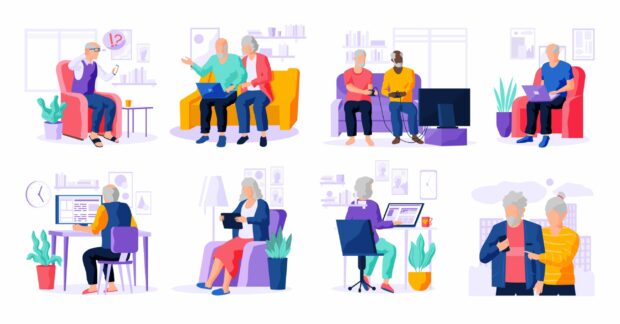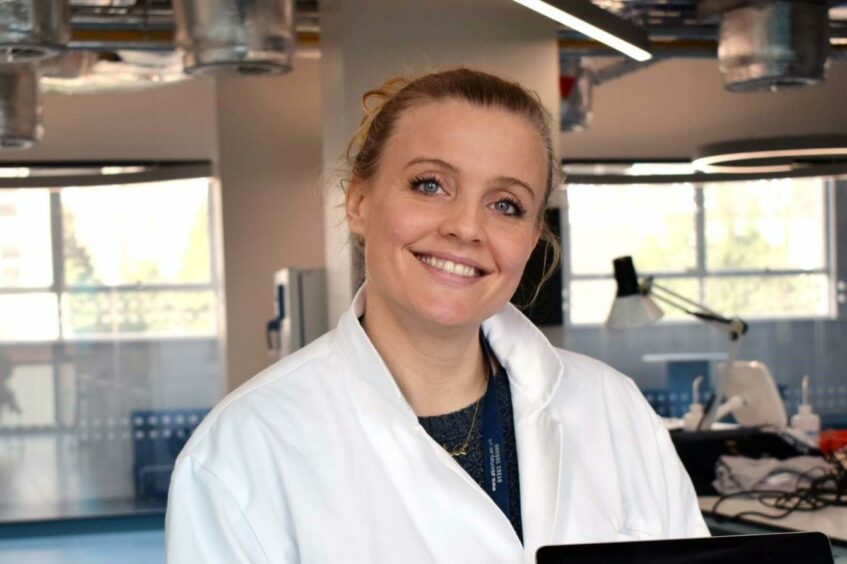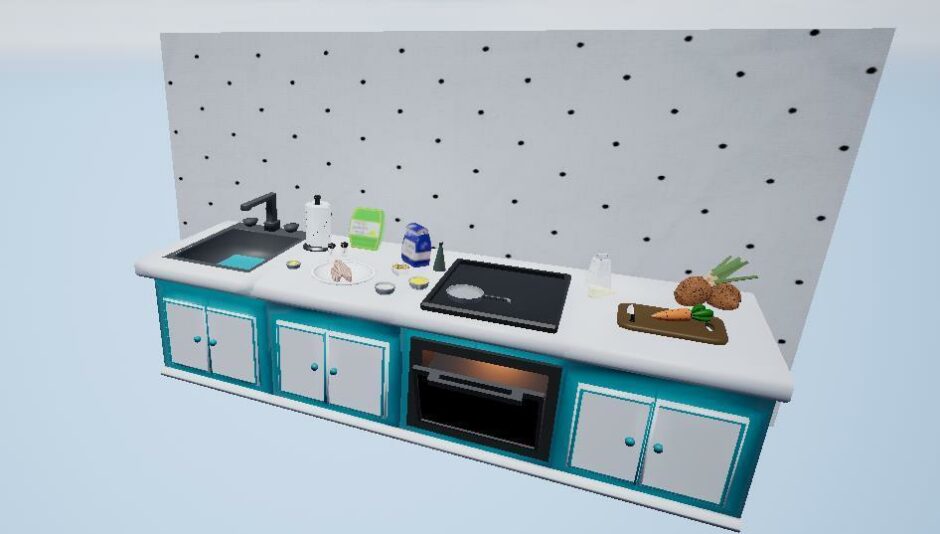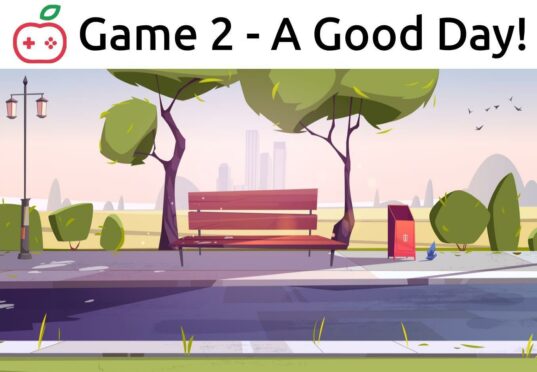New interactive games are being designed by Scottish experts to help people age better as they grow older.
The games teach people over the age of 55 the best foods to eat, how to cook recipes, and how to develop healthier habits.
And nutritionist Dr Sarah Cottin, who co-ordinated the project, highlights how eating the right foods at this age can help slow the ageing process down.
“It’s very important because that’s when many functions start to slowly decline,” she said.
“Your muscle mass and bone mass goes down but with nutritional and lifestyle changes you can really delay these changes. It can help you age better.
“It’s important to be tackling this early – the earlier the better – and get into good habits as early as possible, but it’s never too late.”
How do the games work?
The designers are developing two fun games called Healthy Chef and A Good Day.
When playing the Healthy Chef game you’re asked to choose ingredients and are shown the best ways to cook them.
A Good Day shows players how they can improve their daily habits throughout the day to help them get fitter and develop better routines.
It’s hoped the games, developed through funding from Erasmus, will be available to the public in the spring and there will be no charge to use them.
Nutrition guides will also be available with information on the changes players need to make to improve their health.
They also explain the reasons why.
Our bodies don’t absorb nutrients as well when we get older
Changes to our body as we get older affect its ability to absorb and metabolise all the nutrients needed to stay healthy.
Our metabolism is reduced and it becomes more difficult to regulate insulin resistance or lose fat.
This makes it even more important for older adults to include a good range of nutrient dense foods in their diets.
And it’s just as important to cut back on energy-rich food and drinks high in sugar or fat.
This is why good nutrition, and a healthy lifestyle, can slow the effects of ageing.
Why were these games developed?
The idea came on the back of research showing how interactive games help improve the cognitive skills of pensioners.
“It’s a fun way to learn and we hope the games will help people make changes in their lives,” Dr Cottin, of Abertay University said.
The games are being developed in partnership with Abertay University and other organisations in Spain, France and Italy.
Playing the games
We got the chance to try out the games to see how they work.
Healthy Chef is a great way to find healthier ways to cook your favourite foods as well as finding out new recipes. You can even try out some French, Spanish or Italian dishes.
My task was to make fish, chips and mushy peas, a popular takeaway meal in Scotland.
This recipe shows how you can make your own version of it with a much smaller portion of fat in your dish.
A Good Day is an interactive game where you are asked questions about your daily habits.
I was asked about how I spend the hours before I go to bed at night. When I selected reading as my option, I was rewarded with a list of recommended books to read.
We think the games will be a great way to help older generations make sure they get the right nutrition – it’s a more fun way to learn than reading a nutrition leaflet.
More health news…
Vitamin A trial can help restore sense of smell after Covid-19




